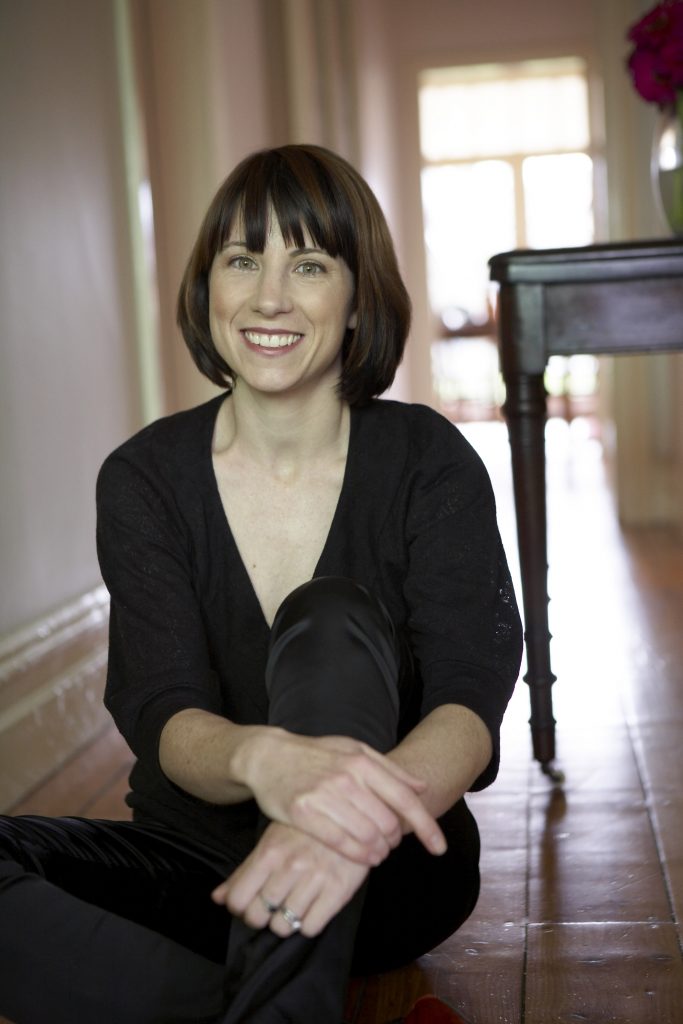Lisa Gorton
Aitken, Au, Fogarty and Gorton shortlisted for the NSW Premier’s Literary Awards
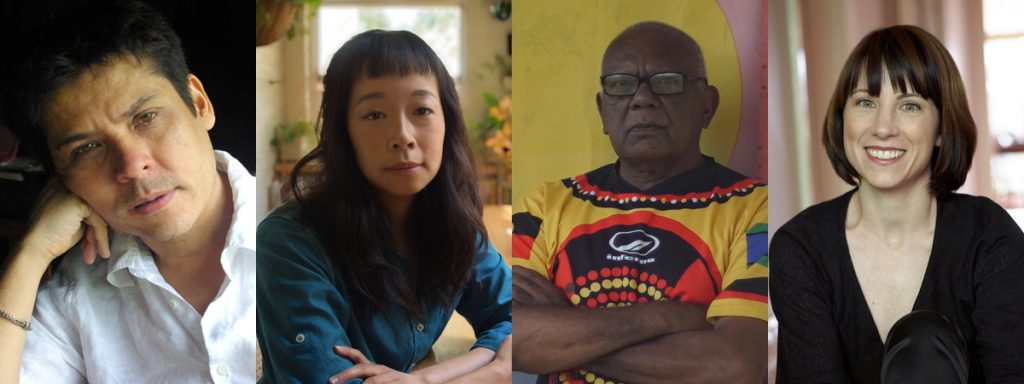
Three Giramondo poets and one novelist have been shortlisted for the 2023 NSW Premier’s Literary Awards. The shortlisted works:
Revenants by Adam Aitken – Poetry Award
Cold Enough for Snow by Jessica Au – Fiction Award
Harvest Lingo by Lionel Fogarty – Indigenous Writer’s Prize
Mirabilia by Lisa Gorton – Poetry Award
Read the judges’ comments below. Congratulations to these authors, and to all of this year’s finalists.
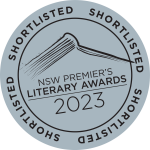
Revenants by Adam Aitken
Shortlisted for the Kenneth Slessor Prize for Poetry
Revenants is a mesmerising collection of wistful, atmospheric poems that speak of returnings and revisitations, of the impossible desire to embody and inhabit the past. The poet guides us through places, people and events which no longer exist, but have left their indelible shadows on this earth. Aitken questions what it means to be haunted, and seamlessly juxtaposes the prosaic with the poetic, at times self-consciously subverting the artistic impulse with wry humour.
With characteristic gentleness and a deft lightness of touch, Aitken displays his restless curiosity and probing intelligence throughout the poems, all the while dancing upon strange currents of longing, loneliness and resignation. Throughout the collection, Revenants reiterates the questions that underpin our meaning-making in this world: What does it mean to be alive? What does it mean to be dead? ‘We enter this room / and all stop talking. / Maybe it’s like this / beyond the canvas’.
— Judges’ comments

Cold Enough for Snow by Jessica Au
Shortlisted for the Christina Stead Prize for Fiction
Vote for the book in the NSWPLA People’s Choice Awards here. Voting closes 14 April 2023.
A masterpiece of observation and subtle insight, this exquisite novel uses crisp prose and the deceptive simplicity of its narrative to bring intimate relationships to shimmering life. A daughter and mother meet for a holiday in Japan. The narrator-daughter observes her mother as they wander through the streets of Tokyo, into galleries, temples and shops, and into tentative conversations that evoke their shared and separate and sometimes imagined experiences.
As each deftly rendered episode flows onto the next, a meditation emerges on the elusive, shifting web of meaning made by stories, memories and images in our lives. Deeply felt and brilliantly restrained, this book conveys the often-contradictory dynamics in the parent–child relationship, the way in which both alienation and intimacy, and difference and resonance, shape the relationships between the narrator and her mother, and the narrator with herself.
— Judges’ comments
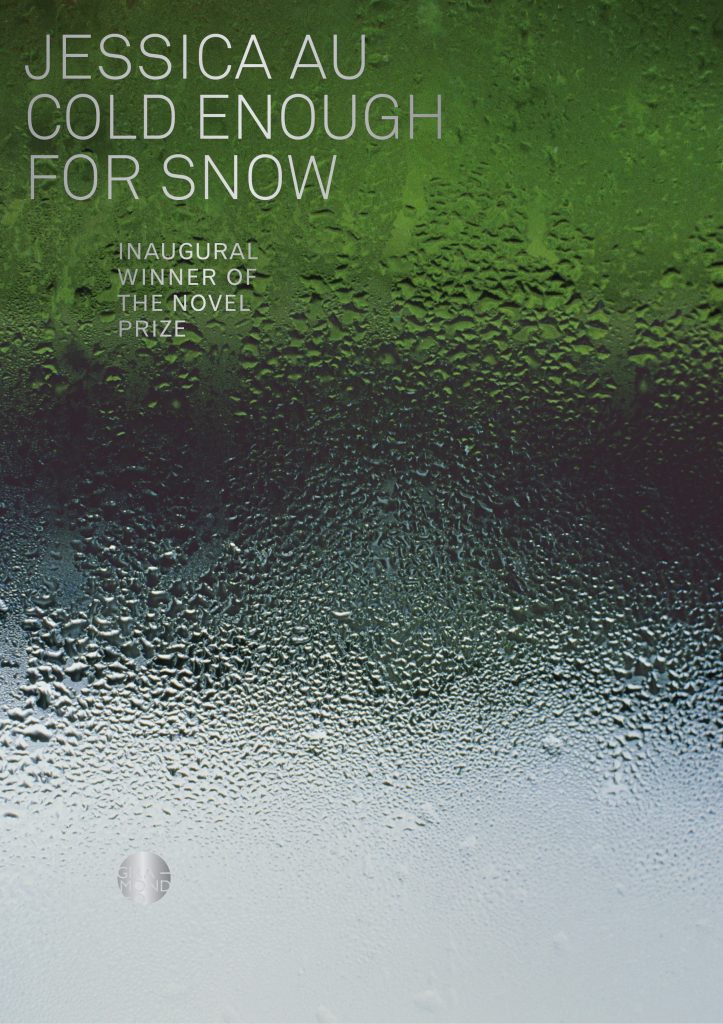
Harvest Lingo by Lionel Fogarty
Shortlisted for the Indigenous Writers’ Prize
This extraordinary volume of poetry from renowned Yugambeh poet Lionel Fogarty is urgent, poignant and compelling. It reckons with history, interconnectedness and injustice, interweaving individual experience with the larger webs of relationships that link First Nations peoples to each other whilst also speaking to connections with colonised peoples elsewhere. Throughout, Fogarty interrogates expression and form, wielding the English language itself as a decolonising tool. The poet challenges empire while portraying the lives and experiences of First Nations peoples with intimacy and grace.
Harvest Lingo invites the reader into dialogues that stretch across time, space, and place. This collection is uncompromising in its demand that the voices of First Nations peoples, communities and Countries be heard on our own terms. Every carefully chosen word connects with others to form a rhythm that is sometimes gentle and sometimes fierce, mirroring the heartbeats of peoples, place and resistance that shape this collection.
— Judges’ comments
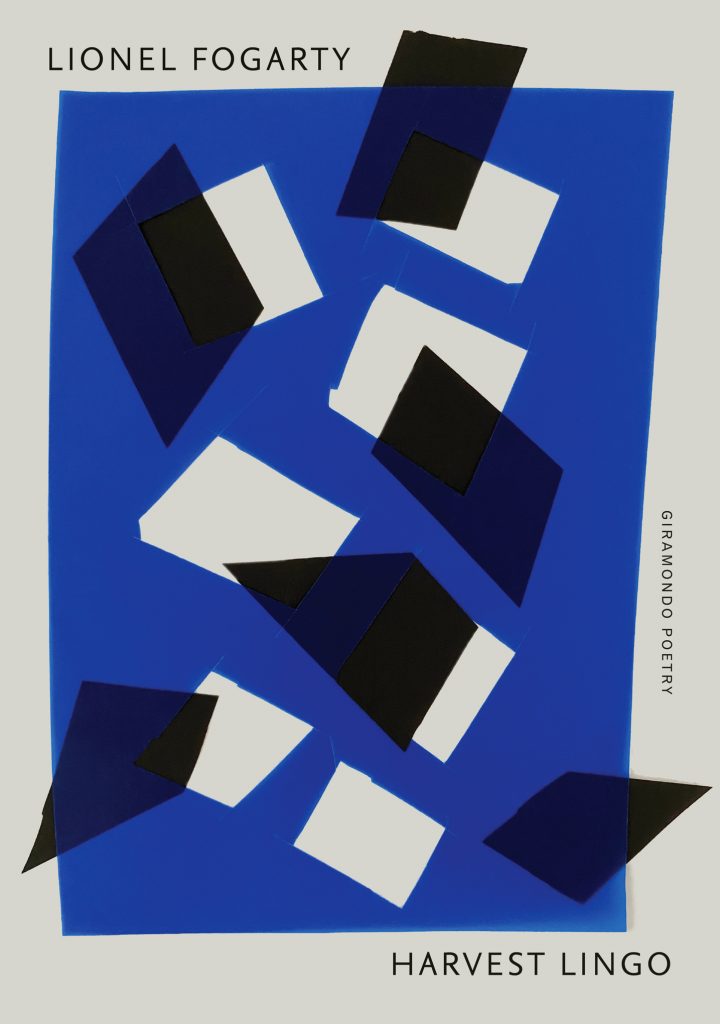
Mirabilia by Lisa Gorton
Shortlisted for the Kenneth Slessor Prize for Poetry
Mirabilia’s poems stem from deep, eclectic research. As they unpick and anatomise ekphrastic practices (sometimes gutting them), they are propelled by a powerful interest in justice, especially concerning women’s lives and the more-than-human world. The poems’ method involves looking again, assembling evidence in patterns so that poems speak to one another. Lines and images bounce between poems, repositioned, restive. These astounding poems unfold like the chambers of a nautilus: spiralling, repeating in dazzling patterns.
An eye/I hovers but is brought into question for its complicity in ways of seeing that have cramped or violated the lives and conditions Gorton explores. This eye/I is unsettled, elided, displaced, mirrored and measured. Gorton’s intelligent and inventive poems dwell between the lines of history, art and poetry, cerebral, mysterious and often devastating. They bring to poetry a heteroglossia usually confined to fiction in their exhilarating consideration of how art might be made and unmade.
— Judges’ comments
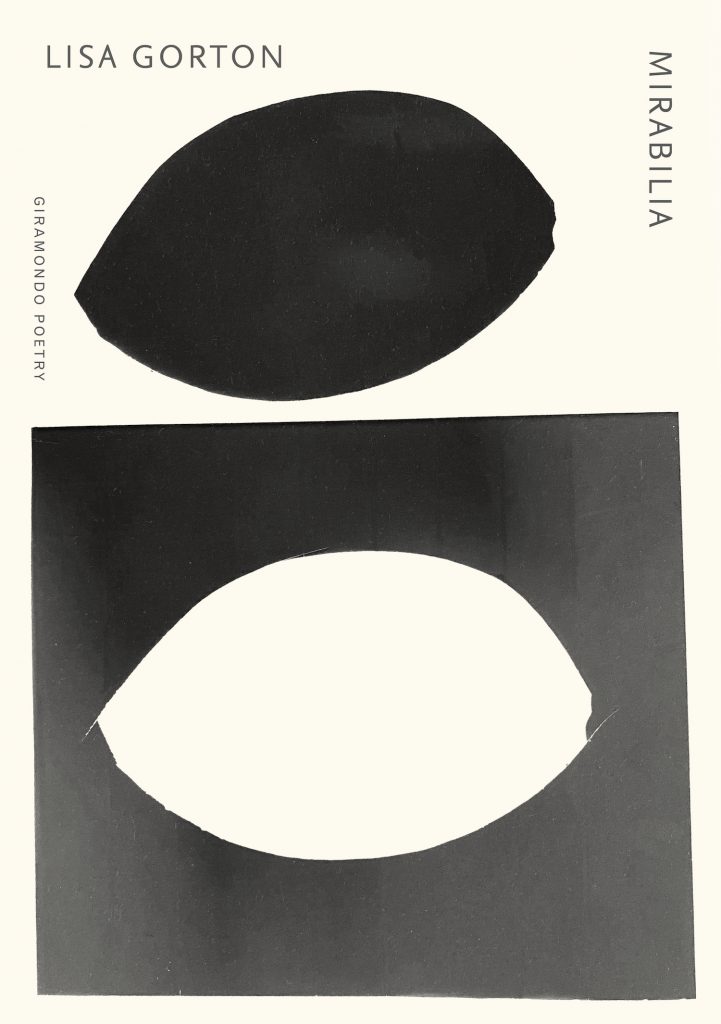
‘Magnificence’: a poem by Lisa Gorton
The following poem is from Mirabilia, a collection by Lisa Gorton published in 2022.
Magnificence
In his study Il Magnifico kept a bronze statue of Marsyas they called The Nude of Fear. He liked to think about the mechanics of clocks. He had Verrocchio finish his antique porphyry statue of Marsyas, its missing limbs made with such art they had white veins in the red stone where nerves show in living bodies when they are flayed. Among his treasures he kept a mirrored glass sphere, a unicorn’s horn the length of a lance, an elephant’s tooth. When he adopted the child he made out the mother had been ‘a woman of the Gorini, his friend’. After he died they found his doctor drowned upside down in a well.

Lisa Gorton: a note on Mirabilia
Lisa Gorton reflects on her poetry collection Mirabilia (August 2022), which follows on from her acclaimed books Hotel Hyperion, Empirical and The Life of Houses.
I wrote the title poem Mirabilia during one of Melbourne’s lockdowns. It’s a poem about pangolins: the most-trafficked mammals on earth; they die in captivity. Perhaps, scientists said, the bat coronavirus mutated in a human host; perhaps the bat and pangolin coronaviruses met in the same host, caged together.
‘Mirabilia’ is also a meditation on a line in Marianne Moore’s poem ‘The Pangolin’: ‘if that which is at all were not forever’. ‘Mirabilia’ is written in Fibonacci syllabics, reflecting how a pangolin spirals up in itself. That pattern in the poem is also a lament for the natural pattern of growth and return, which has lived in the background of poetry’s images for so long.
Over time, reading about poets’ lives, I noticed how often mothers, particularly of male poets, are characterised as destructive. Slowly I started to put together a long poem ‘On the Characterisation of Male Poets’ Mothers’. For this, I set myself a rule: only to use quotes from Wikipedia, because, in this poem, I’m trying to hold to light to generally received ideas.
I wanted to disrupt the language of connoisseurship, organised around the dream of the male ‘genius’ – to force the experience of the artist’s muse back into the picture. I set quotes from Cellini’s Autobiography against the Louvre’s suave description of his artwork. And, after reading Bernard Berenson’s dismissal of Leonardo da Vinci’s painting The Benois Madonna – dismissed because the ‘young woman’ in it had ‘puffed cheeks, a toothless smile, blear eyes’ – I spent a year trying to trace the life of the woman who is, I think, the model for this picture.
So, the sequence ‘Tongue’ sets Leonardo’s artwork in context, in the year of the Pazzi conspiracy, when Giuliano de’ Medici was murdered, and it traces the life of Fioretta del Cittadino who was the mother of Giuliano’s child. After his murder, her child was taken and she was forgotten. Art, broken bodies, grief, effigies, and the myth of Medusa: these poems worry at the relationship between the human body and its language.
I wrote ‘Great World Atlas’ for Izabela Pluta’s artist’s book Figures of slippage and oscillation (Perimeter Editions, 2019). For this, Pluta made darkroom contact prints from three editions of the Reader’s Digest Great World Atlas. Her artworks have the colours of an x-ray. They show maps, overwritten, backwards against each other.
These poems track the vast extent of nuclear testing in the years of these editions. They include the careless brutality of Ernest Titterton, for instance, who, knowing that Britain had ploughed plutonium into the sands of Maralinga, said: ‘If aboriginal [sic] people objected to the tests they would vote the government out’ – when Australia’s First Nations people were unenfranchised, still.
In Mirabilia, I was questioning the relationship between art and politics. These poems are crowded with quotes, events, anecdotes, inventories, and fragments of myth, because I was trying to bring into poetry that heteroglossia (raznorechie, ‘varied-speechedness’) which Mikhail Bakhtin found only in the novel: a clash of different voices, different conceptions of world.
— Lisa Gorton
